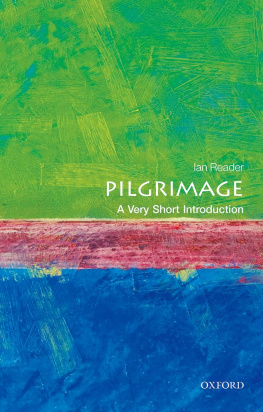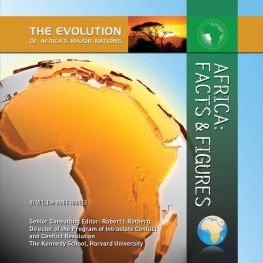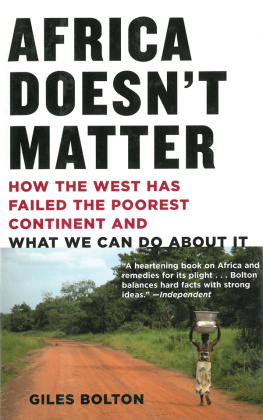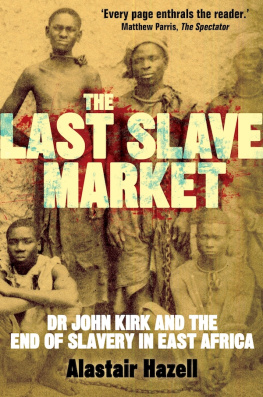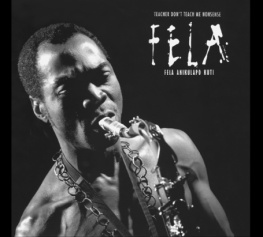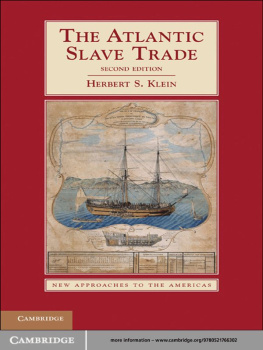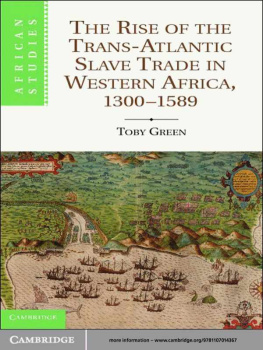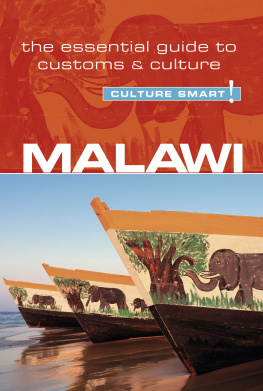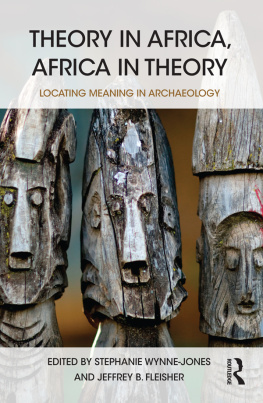PENGUIN BOOKS
AFRICA
A rich, coherent and highly readable account of Africa This is geography, history, anthropology and ecology on a grand scale Richard Dowden, Literary Review
Immensely rewarding Reader writes with a sweeping historical perspective and an engaging familiarity with the continent and its people Publisher's Weekly
His account combines the best of academic research with a sense of Africa which is vivid and understandable Economist
Massive and magnificent The book's real strength is in the mind-expanding links it forges between the natural and, as we perceive it, the human world Giles Foden, Evening Standard
Reader has assembled a vast quantity of information from the earliest Stone Age times to our own epoch with consistent good sense and judgement This is a highly readable handbook to humanity in Africa and deserves to be widely welcomed' Basil Davidson, Guardian
ABOUT THE AUTHOR
John Reader is a writer and photojournalist with more than forty years professional experience, much of it in Africa. Born in London in 1937, he currently holds an Honorary Research Fellowship in the Department of Anthropology at University College London, and is a fellow of the Royal Geographical Society. His work has included contributions to major international publications, consultancies for the United Nations Environment Programme, scripts for television documentaries and the books Pyramids of Life (with Harvey Croze, 1977), Missing Links: The Hunt for Earliest Man (1981; Penguin, 1988), Kilimanjaro (1982), The Rise of Life (1986), Mount Kenya (1989) and Man on Earth (1988; Penguin, 1990). He now lives in south-west London.
AFRICA
A Biography of the Continent
JOHN READER
PENGUIN BOOKS
PENGUIN BOOKS
Published by the Penguin Group
Penguin Books Ltd, 80 Strand, London WC2R 0RL, England
Penguin Putnam Inc., 375 Hudson Street, New York, New York 10014, USA
Penguin Books Australia Ltd, 250 Camberwell Road, Camberwell, Victoria 3124, Australia
Penguin Books Canada Ltd, 10 Alcorn Avenue, Toronto, Ontario, Canada M4V 3B2
Penguin Books India (P) Ltd, 11 Community Centre, Panchsheel Park, New Delhi 110 017, India
Penguin Books (NZ) Ltd, Cnr Rosedale and Airborne Roads, Albany, Auckland, New Zealand
Penguin Books (South Africa) (Pty) Ltd, 24 Sturdee Avenue, Rosebank 2196, South Africa
Penguin Books Ltd, Registered Offices: 80 Strand, London WC2R 0RL, England
www.penguin.com
First published by Hamish Hamilton 1997
Published in Penguin Books 1998
Copyright John Reader1997,1998
All rights reserved
The moral right of the authors has been asserted
Except in the United States of America, this book is sold subject to the condition that it shall not, by way of trade or otherwise, be lent, re-sold, hired out, or otherwise circulated without the publisher's prior consent in any form of binding or cover other than that in which it is published and without a similar condition including this condition being imposed on the subsequent purchaser
ISBN: 978-0-14-192693-3
CONTENTS
PREFACE
I am a white Anglo-Saxon male the son of a London taxi-driver. On a damp Monday afternoon in July 1955 I boarded an 8,000-ton freighter in the Royal Albert docks and set sail for Africa. We were out of sight of land by the time I went on deck the next morning, the sky still overcast and the ship pitching and rolling with the heave of the Atlantic ocean as we entered the Bay of Biscay. That day was my eighteenth birthday and it marked the first time I had left England. Indeed, it was the first time I had travelled more than a hundred miles or so in any direction, and the first time I had been so completely separated from family and familiar surroundings.
I lived in Cape Town for eight years, and was often in the company of a family on the fringes of the Afrikaner establishment. From time to time I was obliged to hear their defiant rejections of world opinion concerning apartheid. Only the Afrikaners knew how to treat Africa's nieblankes (non-whites), they would say. One, a wine-grower, boasted that he would never hesitate to use his sjambok (a rhino-hide whip) on farm workers old enough to be his father, or mine.
Later, I was based in Nairobi for ten years where, as the colonial period drew to a close and black Africa assumed the responsibilities of independence, the experiences of life in white-ruled South Africa were tempered by experiences of a broader kind. As a photojournalist covering all sub-Saharan Africa I travelled widely. I was under fire with Nigerian troops advancing to quell the Biafran secession; I saw Tom Mboya and Kwame Nkrumah buried; I shook hands with Idi Amin the day after Milton Obote was deposed. I met Julius Nyerere, Jomo Kenyatta, Helen Suzman, Alan Paton, Steve Biko, Gatsha Buthe-lezei, and Ian Smith. I went to church with General Mobutu and his family; I attended Haile Selassie's eightieth-birthday celebrations; I saw refugees starving; I travelled down the Nile, up the Congo, through the Okavango delta and across the Kalahari. I watched Mary Leakey uncover the fossil footprints of human antecedents who lived more than 3.6 million years ago.
Africa has been a formative element of my life and career. This means that however much I may have tried to adopt an objective point of view, this book inevitably bears the mark of subjective influences. Not the least of these is a conviction that, throughout recorded history, Africa has been woefully misunderstood and misused by the rest of the world. Humanity simply does not recognize its debts and obligations to Africa. In western imagery, Africa is the dark continent. A synonym perhaps, but also the potent symbol of a persistent inclination to set Africa and its inhabitants apart from the rest of humanity. The double meaning of the phrase is clear. The dark continent does not refer only to the depths of Africa's equatorial forest, to the density of its tropical shadows, to the blackness of African skin, or even to a widespread lack of knowledge concerning the continent. Above all, the phrase tacitly labels Africa as the place where a very particular form of darkness is found the darkness of humanity. In this context, Africa is where people do terrible things, not because the aptitude for such behaviour is a characteristic of all humanity, but because Africa is believed to be inherently more barbaric and less civilized than the rest of the world.
That people have behaved barbarically in Africa is undeniable but, as events in other parts of the world have demonstrated time and again, this is not an exclusively African tendency. Indeed, civilization as an expression of cultured behaviour is a very transitory feature of the human story. Civilization is not a predetermined consequence of human progress, as the Victorians believed, with white Anglo-Saxons leading the way, the rest of the world following in their wake, and the Africans straggling several centuries behind. On the contrary, civilization is more like a protective skin of enlightened self-interest that all societies develop as they learn to regulate their interactions with the environment, and with other people, to the long-term benefit of all parties.
Once established for a few generations, civilization might seem durable enough to last for ever. But the skin of enlightened self-interest is very delicate, easily eroded, and the human capacity for unspeakable barbarity lies just beneath its surface. Africa's horrors are chilling examples of what people are capable of doing to one another when short-term exploitation has taken over from long-term regulation, when the notion of accountability has been swept aside and the promise of the future is hidden by the trials of surviving in the present.
Next page

